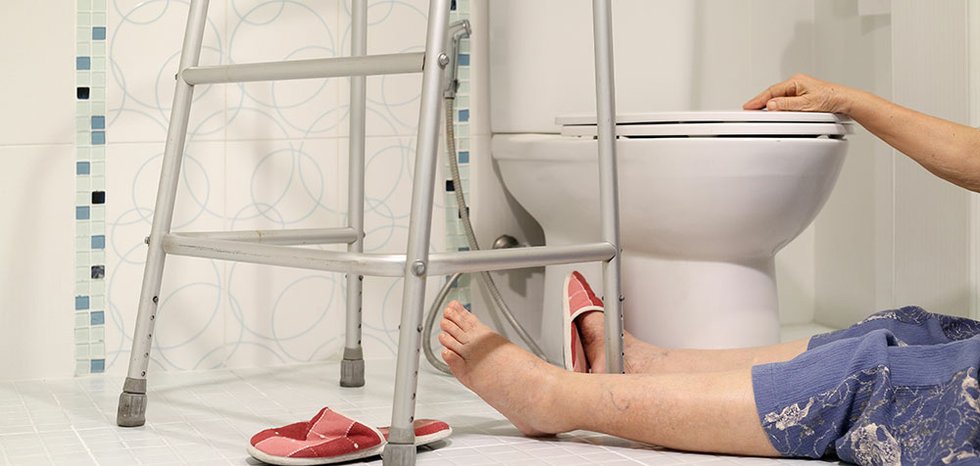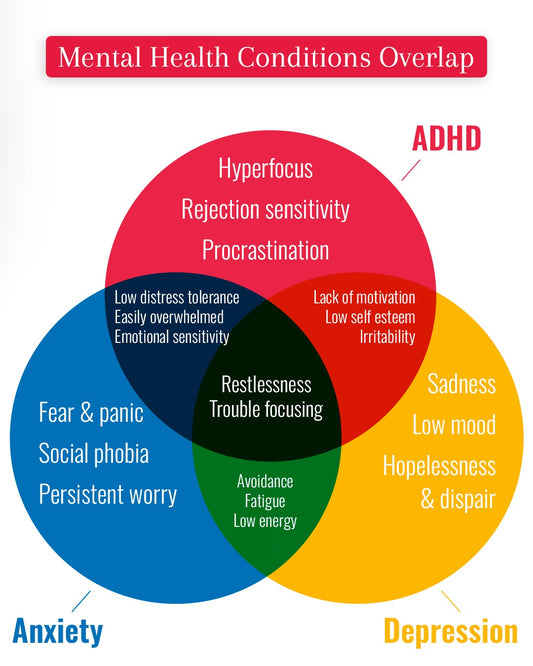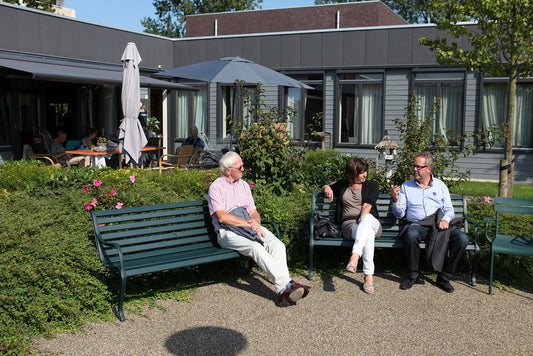
Dealing with Bathroom Accidents
When you have a loved one who has been diagnosed with Alzheimer’s or dementia, you can expect that sooner or later they will become incontinent. Since it is a gradual process, you cannot predict when and how it may start. Therefore it is important that caregivers are aware from the beginning of how bathroom accidents happen, how to deal with them, and the types of products available to manage them.
QUICK LINKS - TOPICS COVERED:
- HOW DO BATHROOM ACCIDENTS HAPPEN?
- HOW TO DEAL WITH BATHROOM ACCIDENTS
- PRODUCTS TO MANAGE BATHROOM ACCIDENTS
How Do Bathroom Accidents Happen?
There are many reasons why your loved one may be having bathroom accidents. The exact cause may vary from person to person. For a loved one with dementia, it could be any of the following reasons:
- Not reacting quickly enough to the sensation of needing to use the toilet
- Not getting to the toilet in time—due to limited mobility, for example
- Not being able to tell the caregiver that they need to go to the toilet due to difficulty in communication
- Not understanding a prompt from someone to use the toilet
- Not being able to find, recognize, or use the toilet—if someone becomes confused about their surroundings, they may end up urinating or releasing a bowel movement in an inappropriate place because they mistake it for a toilet
- Not being able to, or forgetting how to, do things needed to use the toilet such as undoing clothing, not letting others help, or simply refusing to use the toilet—this could be due to embarrassment or not understanding an offer for help.
- Not making any not making any attempt to find the toilet—this could be due to depression, a lack of motivation, or because the person is distracted
- Embarrassment after an accident, which the person unsuccessfully tries to manage. For example, they may try to hide wet or soiled clothes at the back of a drawer to deal with later, and then forget they’ve put them there.
Keep in mind that over time that the cause of your loved one’s bathroom accidents may be different than the cause when they first started becoming incontinent.
How to Deal with Bathroom Accidents?
Maintain Bladder Health
First and foremost, maintaining a healthy bladder can possibly help avoid unnecessary accidents. A number of things that can be done in order to maintain bladder health are:
- Avoid carbonated or caffeinated beverages – they contain diuretics which can increase the frequency of urination, thereby increase the risk of incontinence.
- Identify and possibly limit certain medications that could lead to incontinence (sleeping pills, anti-anxiety drugs)
- Limit liquids before bed – to ensure that the likelihood of accidents occurring over the night is reduced.
- BUT don’t limit liquids during the day – adequate fluid intake during the day keeps the bladder and bowel healthy.
- Avoid acidic or spicy food – they can irritate the urinary tract.
- Eat foods containing fiber – helps to avoid constipation.
- Exercise regularly – maintaining good physical health can also keep the bladder muscles strong.
Reduce Accidents During the Night
For some people, bathroom accidents tend to happen more often during the night. There are a few reasons for this:
- Awareness is less when the person is asleep
- Difficulty navigating to the bathroom in the dark
- Slow to react when the person is groggy with sleep
In such instances, a couple of things can be done. They are to:
- Limit the consumption of liquids at least a couple of hours before bed time.
- Schedule night time toilet trips—gently wake up your loved one and direct them or escort them to the toilet. Be sure to vary the toilet timings so that their bladder does not become accustomed to a particular timing.
Be Respectful
Being an adult, even with dementia, incontinence is a difficult thing for your loved one to face. There is often stigma associated with it as people often equate bathroom accidents and poor bladder control with children. Your loved one may feel as if they’re losing control of their own body. They may also feel embarrassed whenever they have an accident.
Therefore it is important to keep in mind that one should always be respectful when dealing with accidents. Never let your loved one feel embarrassed or like they’re being talked down on. In case accidents happen, be careful to not hurt your loved one’s feelings. Choose your words carefully. Try not to bring attention to the matter. And should accidents happen, focus on the cleanup process without exchanging any negative words.
Encourage Use of Toilet
If your loved one is in the middle to late stages of dementia as they are likely to forget about going to the toilet or may not realize it until it’s too late. Gently remind them to go to the bathroom at regular intervals.
Make it Easy to Find the Toilet
For dementia patients, sometimes their own home may seem like a strange new place at times. Finding the toilet may become challenging. To help them find the toilet with ease, you can consider some of the following:
- Clear the path to the bathroom
- Keep the bathroom door open
- Use signs & markers on the floor and doors
- Use lights to guide them to the bathroom
- Remove any door locks
- Use contrasting color in the bathroom
Establish Toileting Schedule
In addition to scheduling night time toilet trips, it can be helpful to do so during the day as well. Try to keep track of your loved one’s toilet use throughout the day and identify any patterns that may emerge. Based on those patterns, try to plan ahead and establish a toileting schedule.
Toilet Friendly Clothing
It is best to adapt your loved one’s clothing to the new situation. Choose clothes that are easy to wash, has zippers or Velcro closures, and shoes without laces. Any item of clothing they wear should be easy to get in and out of.
Products to Manage Bathroom Accidents
There are many different products out there today that can help both your loved one and their caregiver to successfully manage or minimize bathroom accidents. The most suitable product for a person can vary depending on the severity of incontinence.
One of the most commonly available products out there that can help people with problems using the toilet are adult diapers. Unlike the common term used to describe it, they aren’t just diapers enlarged to fit adults. They can come in a variety of sizes, absorbencies, styles, and even colors. Examples include:
-
Adult diapers
These are similar to disposable diapers used for infants, but are specifically designed for use by adults
-
Absorbent pads
These are disposable and designed for both men and women. Adhesive strips hold them inside the undergarment.
-
Incontinence panties and briefs
These look a lot like everyday underwear for men and women, but has an additional waterproof liner and built-in cloth pad to absorb urine. They are usually washable and reusable.
-
Disposable underwear
These are similar to regular underwear with only one difference. It is designed to be disposable. Some even have tape on the sides so that they are easily adjustable and removable. They come in day and overnight versions.
-
Plastic pants
These fit over regular undergarments and help protect against mild to moderate leaks.
Other products that can help to manage bathroom accidents include:
-
Portable toilet
Can be useful especially during the night when the bathroom can be extra challenging to find for your loved one.
-
Washable bed pads
Even when diapers are being used during nighttime, accidents can still happen. To manage it, use washable mattress protector-like bed pads designed for extra absorption.
-
Seat protector
If bed pads are meant to be used on your loved one’s bed during nighttime, then seat protectors are meant to be used during the day on any chair or surface that your loved one may sit at.
-
Urine Solidifier & Deodorizer
If your loved one has to use a bedpan or portable urinals, a urine solidifier can come in very handy. It can also make cleaning accidental urine spills less of a hassle. The product comes in granule forms that can be sprinkled on urine to absorb and solidify within minutes. It also helps to eliminate unfavorable smells, making urine clean-up quicker and more convenient.



